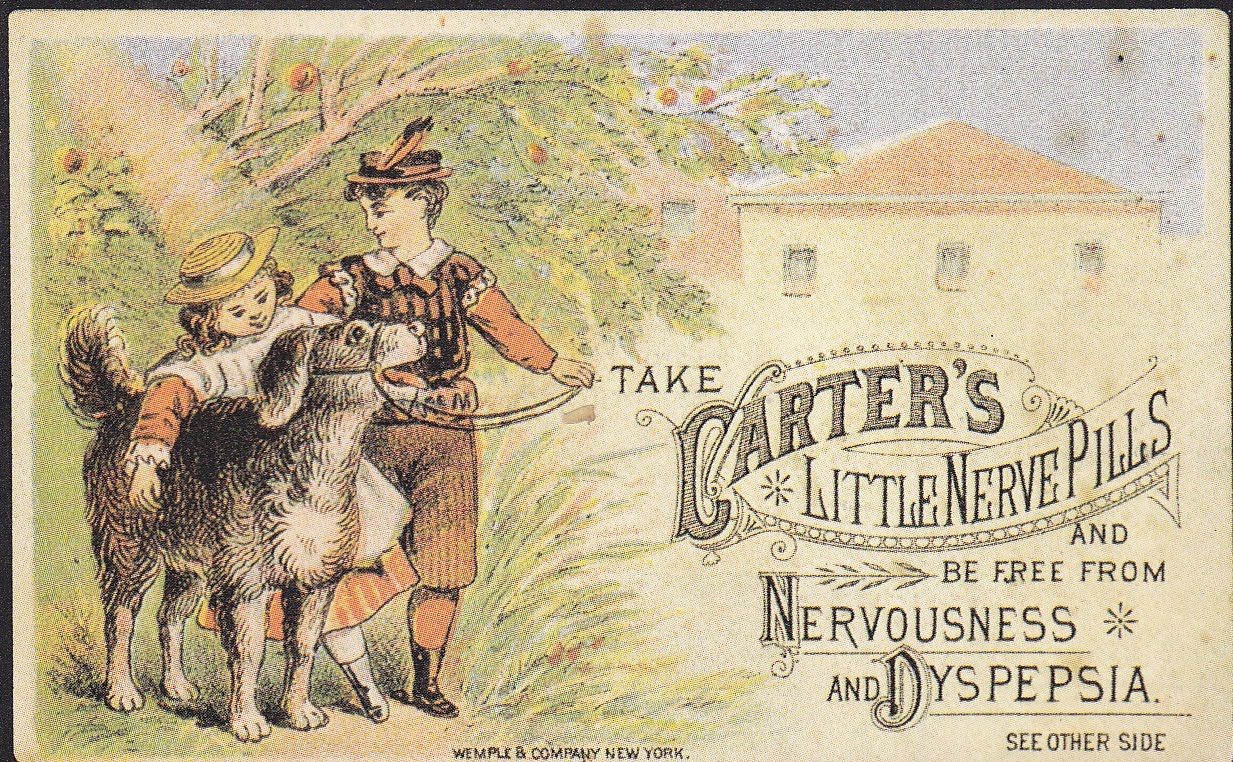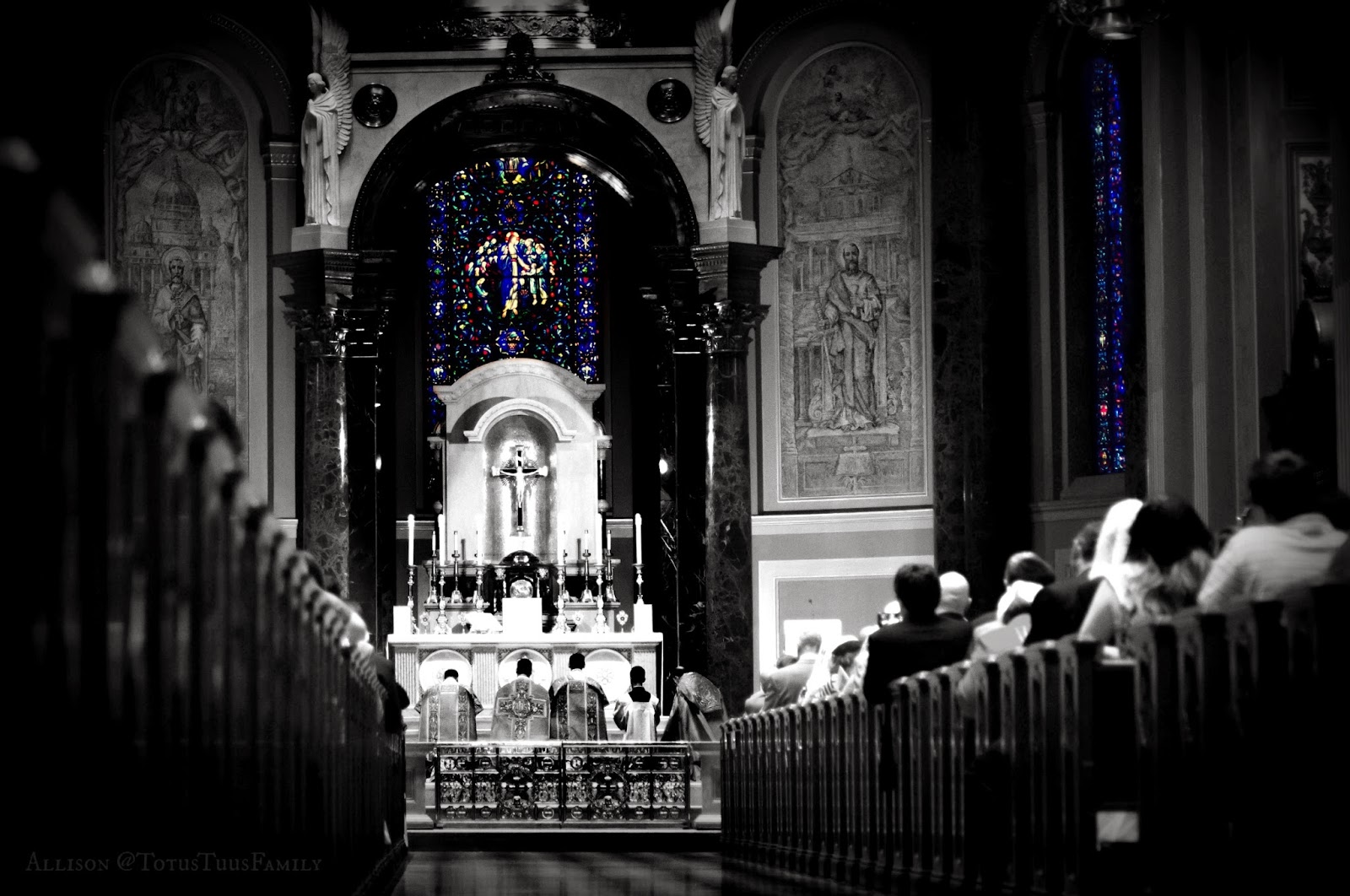Christ had bidden the first disciples love one another as He had loved them. Thus they were to bear testimony to the world that Christ was formed within, the hope of glory. "A new commandment I give unto you," He had said, "That ye love one another; as I have loved you, that ye also love one another." John 13:34. At the time when these words were spoken, the disciples could not understand them; but after they had witnessed the sufferings of Christ, after His crucifixion and resurrection, and ascension to heaven, and after the Holy Spirit had rested on them at Pentecost, they had a clearer conception of the love of God and of the nature of that love which they must have for one another. Then John could say to his fellow disciples:
"Hereby perceive we the love of God, because He laid down His life for us: and we ought to lay down our lives for the brethren."
After the descent of the Holy Spirit, when the disciples went forth to proclaim a living Saviour, their one desire was the salvation of souls. They rejoiced in the sweetness of communion with saints. They were tender, thoughtful, self-denying, willing to make any sacrifice for the truth's sake. In their daily association with one another, they revealed the love that Christ had enjoined upon them. By unselfish words and deeds they strove to kindle this love in other hearts.
Such a love the believers were ever to cherish. They were to go forward in willing obedience to the new commandment. So closely were they to be united with Christ that they would be enabled to fulfill all His requirements. Their lives were to magnify the power of a Saviour who could justify them by His righteousness. But gradually a change came. The believers began to look for defects in others. Dwelling upon mistakes, giving place to unkind criticism, they lost sight of the Saviour and His love. They became more strict in regard to outward ceremonies, more particular about the theory than the practice of the faith. In their zeal to condemn others, they overlooked their own errors. They lost the brotherly love that Christ had enjoined, and, saddest of all, they were unconscious of their loss. They did not realize that happiness and joy were going out of their lives and that, having shut the love of God out of their hearts, they would soon walk in darkness.
John, realizing that brotherly love was waning in the church, urged upon believers the constant need of this love. His letters to the church are full of this thought. "Beloved, let us love one another," he writes; "for love is of God; and everyone that loveth is born of God, and knoweth God. He that loveth not knoweth not God; for God is love. In this was manifested the love of God toward us, because that God sent His only-begotten Son into the world, that we might live through Him. Herein is love, not that we loved God, but that He loved us, and sent His Son to be the propitiation for our sins. Beloved, if God so loved us, we ought also to love one another."
Of the special sense in which this love should be manifested by believers, the apostle writes: "A new commandment I write unto you, which thing is true in Him and in you: because the darkness is past, and the true light now shineth. He that saith he is in the light, and hateth his brother, is in darkness even until now. He that loveth his brother abideth in the light, and there is none occasion of stumbling in him. But he that hateth his brother is in darkness, and walketh in darkness, and knoweth not whither he goeth, because that darkness hath blinded his eyes." "This is the message that ye heard from the beginning, that we should love one another." "He that loveth not his brother abideth in death. Whosoever hateth his brother is a murderer: and ye know that no murderer hath eternal life abiding in him. Hereby perceive we the love of God, because He laid down His life for us: and we ought to lay down our lives for the brethren."
It is not the opposition of the world that most endangers the church of Christ. It is the evil cherished in the hearts of believers that works their most grievous disaster and most surely retards the progress of God's cause. There is no surer way of weakening spirituality than by cherishing envy, suspicion, faultfinding, and evil surmising. On the other hand, the strongest witness that God has sent His Son into the world is the existence of harmony and union among men of varied dispositions who form His church. This witness it is the privilege of the followers of Christ to bear. But in order to do this, they must place themselves under Christ's command. Their characters must be conformed to His character and their wills to His will.
"A new commandment I give unto you," Christ said, "That ye love one another; as I have loved you, that ye also love one another." John 13:34. What a wonderful statement; but, oh, how poorly practiced! In the church of God today brotherly love is sadly lacking. Many who profess to love the Saviour do not love one another. Unbelievers are watching to see if the faith of professed Christians is exerting a sanctifying influence upon their lives; and they are quick to discern the defects in character, the inconsistencies in action. Let Christians not make it possible for the enemy to point to them and say, Behold how these people, standing under the banner of Christ, hate one another. Christians are all members of one family, all children of the same heavenly Father, with the same blessed hope of immortality. Very close and tender should be the tie that binds them together.
Divine love makes its most touching appeals to the heart when it calls upon us to manifest the same tender compassion that Christ manifested. That man only who has unselfish love for his brother has true love for God. The true Christian will not willingly permit the soul in peril and need to go unwarned, uncared for. He will not hold himself aloof from the erring, leaving them to plunge farther into unhappiness and discouragement or to fall on Satan's battleground.
Those who have never experienced the tender, winning love of Christ cannot lead others to the fountain of life. His love in the heart is a constraining power, which leads men to reveal Him in the conversation, in the tender, pitiful spirit, in the uplifting of the lives of those with whom they associate. Christian workers who succeed in their efforts must know Christ; and in order to know Him, they must know His love. In heaven their fitness as workers is measured by their ability to love as Christ loved and to work as He worked. "Let us not love in word," the apostle writes, "but in deed and in truth." The completeness of Christian character is attained when the impulse to help and bless others springs constantly from within. It is the atmosphere of this love surrounding the soul of the believer that makes him a savor of life unto life and enables God to bless his work.
Supreme love for God and unselfish love for one another --this is the best gift that our heavenly Father can bestow. This love is not an impulse, but a divine principle, a permanent power. The unconsecrated heart cannot originate or produce it. Only in the heart where Jesus reigns is it found. "We love Him, because He first loved us." In the heart renewed by divine grace, love is the ruling principle of action. It modifies the character, governs the impulses, controls the passions, and ennobles the affections. This love, cherished in the soul, sweetens the life and sheds a refining influence on all around.
John strove to lead the believers to understand the exalted privileges that would come to them through the exercise of the spirit of love. This redeeming power, filling the heart, would control every other motive and raise its possessors above the corrupting influences of the world. And as this love was allowed full sway and became the motive power in the life, their trust and confidence in God and His dealing with them would be complete. They could then come to Him in full confidence of faith, knowing that they would receive from Him everything needful for their present and eternal good. "Herein is our love made perfect," he wrote, "that we may have boldness in the day of judgment: because as He is, so are we in this world. There is no fear in love; but perfect love casteth out fear." "And this is the confidence that we have in Him, that, if we ask anything according to His will, He heareth us: and if we know that He hear us, . . . we know that we have the petitions that we desired of Him."
"And if any man sin, we have an advocate with the Father, Jesus Christ the righteous: and He is the propitiation for our sins: and not for ours only, but also for the sins of the whole world." "If we confess our sins, He is faithful and just to forgive us our sins, and to cleanse us from all unrighteousness." The conditions of obtaining mercy from God are simple and reasonable. The Lord does not require us to do some grievous thing in order to gain forgiveness. We need not make long and wearisome pilgrimages, or perform painful penances, to commend our souls to the God of heaven or to expiate our transgression. He that "confesseth and forsaketh" his sin "shall have mercy." Proverbs 28:13.
In the courts above, Christ is pleading for His church --pleading for those for whom He has paid the redemption price of His blood. Centuries, ages, can never lessen the efficacy of His atoning sacrifice. Neither life nor death, height nor depth, can separate us from the love of God which is in Christ Jesus; not because we hold Him so firmly, but because He holds us so fast. If our salvation depended on our own efforts, we could not be saved; but it depends on the One who is behind all the promises. Our grasp on Him may seem feeble, but His love is that of an elder brother; so long as we maintain our union with Him, no one can pluck us out of His hand.
As the years went by and the number of believers grew, John labored with increasing fidelity and earnestness for his brethren. The times were full of peril for the church. Satanic delusions existed everywhere. By misrepresentation and falsehood the emissaries of Satan sought to arouse opposition against the doctrines of Christ, and in consequence dissensions and heresies were imperiling the church. Some who professed Christ claimed that His love released them from obedience to the law of God. On the other hand, many taught that it was necessary to observe the Jewish customs and ceremonies; that a mere observance of the law, without faith in the blood of Christ, was sufficient for salvation. Some held that Christ was a good man, but denied His divinity. Some who pretended to be true to the cause of God were deceivers, and in practice they denied Christ and His gospel. Living themselves in transgression, they were bringing heresies into the church. Thus many were being led into the mazes of skepticism and delusion.
John was filled with sadness as he saw these poisonous errors creeping into the church. He saw the dangers to which the church was exposed, and he met the emergency with promptness and decision. The epistles of John breathe the spirit of love. It seems as if he wrote with a pen dipped in love. But when he came in contact with those who were breaking the law of God, yet claiming that they were living without sin, he did not hesitate to warn them of their fearful deception.
Writing to a helper in the gospel work, a woman of good repute and wide influence, he said: "Many deceivers are entered into the world, who confess not that Jesus Christ is come in the flesh. This is a deceiver and an antichrist. Look to yourselves, that we lose not those things which we have wrought, but that we receive a full reward. Whosoever transgresseth, and abideth not in the doctrine of Christ, hath not God. He that abideth in the doctrine of Christ, he hath both the Father and the Son. If there come any unto you, and bring not this doctrine, receive him not into your house, neither bid him Godspeed: for he that biddeth him Godspeed is partaker of his evil deeds."
We are authorized to hold in the same estimation as did the beloved disciple those who claim to abide in Christ while living in transgression of God's law. There exist in these last days evils similar to those that threatened the prosperity of the early church; and the teachings of the apostle John on these points should be carefully heeded. "You must have charity," is the cry heard everywhere, especially from those who profess sanctification. But true charity is too pure to cover an unconfessed sin. While we are to love the souls for whom Christ died, we are to make no compromise with evil. We are not to unite with the rebellious and call this charity. God requires His people in this age of the world to stand for the right as unflinchingly as did John in opposition to soul-destroying errors.
The apostle teaches that while we should manifest Christian courtesy we are authorized to deal in plain terms with sin and sinners; that this is not inconsistent with true charity. "Whosoever committeth sin," he writes, "transgresseth also the law: for sin is the transgression of the law. And ye know that He was manifested to take away our sins; and in Him is no sin. Whosoever abideth in Him sinneth not: whosoever sinneth hath not seen Him, neither known Him."
As a witness for Christ, John entered into no controversy, no wearisome contention. He declared what he knew, what he had seen and heard. He had been intimately associated with Christ, had listened to His teachings, had witnessed His mighty miracles. Few could see the beauties of Christ's character as John saw them. For him the darkness had passed away; on him the true light was shining. His testimony in regard to the Saviour's life and death was clear and forcible. Out of the abundance of a heart overflowing with love for the Saviour he spoke; and no power could stay his words.
"That which was from the beginning," he declared, "which we have heard, which we have seen with our eyes, which we have looked upon, and our hands have handled, of the Word of life; . . . that which we have seen and heard declare we unto you, that ye also may have fellowship with us: and truly our fellowship is with the Father, and with His Son Jesus Christ." So may every true believer be able, through his own experience, to "set to his seal that God is true." John 3:33. He can bear witness to that which he has seen and heard and felt of the power of Christ.
http://www.whiteestate.org/books/aa/aa55.html In the life of the disciple John true sanctification is exemplified. During the years of his close association with Christ, he was often warned and cautioned by the Saviour; and these reproofs he accepted. As the character of the Divine One was manifested to him, John saw his own deficiencies, and was humbled by the revelation. Day by day, in contrast with his own violent spirit, he beheld the tenderness and forbearance of Jesus, and heard His lessons of humility and patience. Day by day his heart was drawn out to Christ, until he lost sight of self in love for his Master. The power and tenderness, the majesty and meekness, the strength and patience, that he saw in the daily life of the Son of God, filled his soul with admiration. He yielded his resentful, ambitious temper to the molding power of Christ, and divine love wrought in him a transformation of character.
In striking contrast to the sanctification worked out in the life of John is the experience of his fellow disciple, Judas. Like his associate, Judas professed to be a disciple of Christ, but he possessed only a form of godliness. He was not insensible to the beauty of the character of Christ; and often, as he listened to the Saviour's words, conviction came to him, but he would not humble his heart or confess his sins. By resisting the divine influence he dishonored the Master whom he professed to love. John warred earnestly against his faults; but Judas violated his conscience and yielded to temptation, fastening upon himself more securely his habits of evil. The practice of the truths that Christ taught was at variance with his desires and purposes, and he could not bring himself to yield his ideas in order to receive wisdom from heaven. Instead of walking in the light, he chose to walk in darkness. Evil desires, covetousness, revengeful passions, dark and sullen thoughts, were cherished until Satan gained full control of him.
John and Judas are representatives of those who profess to be Christ's followers. Both these disciples had the same opportunities to study and follow the divine Pattern. Both were closely associated with Jesus and were privileged to listen to His teaching. Each possessed serious defects of character; and each had access to the divine grace that transforms character. But while one in humility was learning of Jesus, the other revealed that he was not a doer of the word, but a hearer only. One, daily dying to self and overcoming sin, was sanctified through the truth; the other, resisting the transforming power of grace and indulging selfish desires, was brought into bondage to Satan.
Such transformation of character as is seen in the life of John is ever the result of communion with Christ. There may be marked defects in the character of an individual, yet when he becomes a true disciple of Christ, the power of divine grace transforms and sanctifies him. Beholding as in a glass the glory of the Lord, he is changed from glory to glory, until he is like Him whom he adores.
John was a teacher of holiness, and in his letters to the church he laid down unerring rules for the conduct of Christians. "Every man that hath this hope in him," he wrote, "purifieth himself, even as He is pure." "He that saith he abideth in Him ought himself also so to walk, even as He walked." 1 John 3:3; 2:6. He taught that the Christian must be pure in heart and life. Never should he be satisfied with an empty profession. As God is holy in His sphere, so fallen man, through faith in Christ, is to be holy in his sphere.
"This is the will of God," the apostle Paul wrote, "even your sanctification." 1 Thessalonians 4:3. The sanctification of the church is God's object in all His dealings with His people. He has chosen them from eternity, that they might be holy. He gave His Son to die for them, that they might be sanctified through obedience to the truth, divested of all the littleness of self. From them Her requires a personal work, a personal surrender. God can be honored by those who profess to believe in Him, only as they are conformed to His image and controlled by His Spirit. Then, as witnesses for the Saviour, they may make known what divine grace has done for them.
True sanctification comes through the working out of the principle of love. "God is love; and he that dwelleth in love dwelleth in God, and God in him." 1 John 4:16. The life of him in whose heart Christ abides, will reveal practical godliness. The character will be purified, elevated, ennobled, and glorified. Pure doctrine will blend with works of righteousness; heavenly precepts will mingle with holy practices.
Those who would gain the blessing of sanctification must first learn the meaning of self-sacrifice. The cross of Christ is the central pillar on which hangs the "far more exceeding and eternal weight of glory." "If any man will come after Me," Christ says, "let him deny himself, and take up his cross, and follow Me." 2 Corinthians 4:17; Matthew 16:24. It is the fragrance of our love for our fellow men that reveals our love for God. It is patience in service that brings rest to the soul. It is through humble, diligent, faithful toil that the welfare of Israel is promoted. God upholds and strengthens the one who is willing to follow in Christ's way.
Sanctification is not the work of a moment, an hour, a day, but of a lifetime. It is not gained by a happy flight of feeling, but is the result of constantly dying to sin, and constantly living for Christ. Wrongs cannot be righted nor reformations wrought in the character by feeble, intermittent efforts. It is only by long, persevering effort, sore discipline, and stern conflict, that we shall overcome. We know not one day how strong will be our conflict the next. So long as Satan reigns, we shall have self to subdue, besetting sins to overcome; so long as life shall last, there will be no stopping place, no point which we can reach and say, I have fully attained. Sanctification is the result of lifelong obedience.
None of the apostles and prophets ever claimed to be without sin. Men who have lived the nearest to God, men who would sacrifice life itself rather than knowingly commit a wrong act, men whom God has honored with divine light and power, have confessed the sinfulness of their nature. They have put no confidence in the flesh, have claimed no righteousness of their own, but have trusted wholly in the righteousness of Christ.
So will it be with all who behold Christ. The nearer we come to Jesus, and the more clearly we discern the purity of His character, the more clearly shall we see the exceeding sinfulness of sin, and the less shall we feel like exalting ourselves. There will be a continual reaching out of the soul after God, a continual, earnest, heartbreaking confession of sin and humbling of the heart before Him. At every advance step in our Christian experience our repentance will deepen. We shall know that our sufficiency is in Christ alone and shall make the apostle's confession our own: "I know that in me (that is, in my flesh,) dwelleth no good thing." "God forbid that I should glory, save in the cross of our Lord Jesus Christ, by whom the world is crucified unto me, and I unto the world." Romans 7:18; Galatians 6:14.
Let the recording angels write the history of the holy struggles and conflicts of the people of God; let them record their prayers and tears; but let not God be dishonored by the declaration from human lips, "I am sinless; I am holy." Sanctified lips will never give utterance to such presumptuous words.
The apostle Paul had been caught up to the third heaven and had seen and heard things that could not be uttered, and yet his unassuming statement is: "Not as though I had already attained, either were already perfect: but I follow after." Philippians 3:12. Let the angels of heaven write of Paul's victories in fighting the good fight of faith. Let heaven rejoice in his steadfast tread heavenward, and that, keeping the prize in view, he counts every other consideration dross. Angels rejoice to tell his triumphs, but Paul makes no boast of his attainments. The attitude of Paul is the attitude that every follower of Christ should take as he urges his way onward in the strife for the immortal crown.
Let those who feel inclined to make a high profession of holiness look into the mirror of God's law. As they see its far-reaching claims, and understand its work as a discerner of the thoughts and intents of the heart, they will not boast of sinlessness. "If we," says John, not separating himself from his brethren, "say that we have no sin, we deceive ourselves, and the truth is not in us." "If we say that we have not sinned, we make Him a liar, and His word is not in us." "If we confess our sins, He is faithful and just to forgive us our sins, and to cleanse us from all unrighteousness." 1 John 1:8, 10, 9.
There are those who profess holiness, who declare that they are wholly the Lord's, who claim a right to the promises of God, while refusing to render obedience to His commandments. These transgressors of the law claim everything that is promised to the children of God; but this is presumption on their part, for John tells us that true love for God will be revealed in obedience to all His commandments. It is not enough to believe the theory of truth, to make a profession of faith in Christ, to believe that Jesus is no impostor, and that the religion of the Bible is no cunningly devised fable. "He that saith, I know Him, and keepeth not His commandments," John wrote, "is a liar, and the truth is not in him. But whoso keepeth His word, in him verily is the love of God perfected: hereby know we that we are in Him." "He that keepeth His commandments dwelleth in Him, and He in him." 1 John 2:4, 5; 3:24.
John did not teach that salvation was to be earned by obedience; but that obedience was the fruit of faith and love. "Ye know that He was manifested to take away our sins," he said, "and in Him is no sin. Whosoever abideth in Him sinneth not: whosoever sinneth hath not seen Him, neither known Him." 1 John 3:5, 6. If we abide in Christ, if the love of God dwells in the heart, our feelings, our thoughts, our actions, will be in harmony with the will of God. The sanctified heart is in harmony with the precepts of God's law.
There are many who, though striving to obey God's commandments, have little peace or joy. This lack in their experience is the result of a failure to exercise faith. They walk as it were in a salt land, a parched wilderness. They claim little, when they might claim much; for there is no limit to the promises of God. Such ones do not correctly represent the sanctification that comes through obedience to the truth. The Lord would have all His sons and daughters happy, peaceful, and obedient. Through the exercise of faith the believer comes into possession of these blessings. Through faith, every deficiency of character may be supplied, every defilement cleansed, every fault corrected, every excellence developed.
Prayer is heaven's ordained means of success in the conflict with sin and the development of Christian character. The divine influences that come in answer to the prayer of faith will accomplish in the soul of the suppliant all for which he pleads. For the pardon of sin, for the Holy Spirit, for a Christlike temper, for wisdom and strength to do His work, for any gift He has promised, we may ask; and the promise is, "Ye shall receive."
It was in the mount with God that Moses beheld the pattern of that wonderful building that was to be the abiding place of His glory. It is in the mount with God--in the secret place of communion--that we are to contemplate His glorious ideal for humanity. In all ages, through the medium of communion with heaven, God has worked out His purpose for His children, by unfolding gradually to their minds the doctrines of grace. His manner of imparting truth is illustrated in the words, "His going forth is prepared as the morning." Hosea 6:3. He who places himself where God can enlighten him, advances, as it were, from the partial obscurity of dawn to the full radiance of noonday.
True sanctification means perfect love, perfect obedience, perfect conformity to the will of God. We are to be sanctified to God through obedience to the truth. Our conscience must be purged from dead works to serve the living God. We are not yet perfect; but it is our privilege to cut away from the entanglements of self and sin, and advance to perfection. Great possibilities, high and holy attainments, are placed within the reach of all.
The reason many in this age of the world make no greater advancement in the divine life is because they interpret the will of God to be just what they will to do. While following their own desires, they flatter themselves that they are conforming to God's will. These have no conflicts with self. There are others who for a time are successful in the struggle against their selfish desire for pleasure and ease. They are sincere and earnest, but grow weary of protracted effort, of daily death, of ceaseless turmoil. Indolence seems inviting, death to self repulsive; and they close their drowsy eyes and fall under the power of temptation instead of resisting it.
The directions laid down in the word of God leave no room for compromise with evil. The Son of God was manifested that He might draw all men unto Himself. He came not to lull the world to sleep, but to point out the narrow path in which all must travel who reach at last the gates of the City of God. His children must follow where He has led the way; at whatever sacrifice of ease or selfish indulgence, at whatever cost of labor or suffering, they must maintain a constant battle with self.
The greatest praise that men can bring to God is to become consecrated channels through whom He can work. Time is rapidly passing into eternity. Let us not keep back from God that which is His own. Let us not refuse Him that which, though it cannot be given with merit, cannot be denied without ruin. He asks for a whole heart; give it to Him; it is His, both by creation and by redemption. He asks for your intellect; give it to Him; it is His. He asks for your money; give it to Him; it is His. "Ye are not your own, for ye are bought with a price." 1 Corinthians 6: 19, 20. God requires the homage of a sanctified soul, which has prepared itself, by the exercise of the faith that works by love, to serve Him. He holds up before us the highest ideal, even perfection. He asks us to be absolutely and completely for Him in this world as He is for us in the presence of God.
"This is the will of God" concerning you, "even your sanctification." 1 Thessalonians 4:3. Is it your will also? Your sins may be as mountains before you; but if you humble your heart and confess your sins, trusting in the merits of a crucified and risen Saviour, He will forgive and will cleanse you from all unrighteousness. God demands of you entire conformity to His law. This law is the echo of His voice saying to you, Holier, yes, holier still. Desire the fullness of the grace of Christ. Let your heart be filled with an intense longing for His righteousness, the work of which God's word declares is peace, and its effect quietness and assurance forever.
As your soul yearns after God, you will find more and still more of the unsearchable riches of His grace. As you contemplate these riches you will come into possession of them and will reveal the merits of the Saviour's sacrifice, the protection of His righteousness, the fullness of His wisdom, and His power to present you before the Father "without spot, and blameless." 2 Peter 3:14.
http://www.whiteestate.org/books/aa/aa56.html More than half a century had passed since the organization of the Christian church. During that time the gospel message had been constantly opposed. Its enemies had never relaxed their efforts, and had at last succeeded in enlisting the power of the Roman emperor against the Christians.
In the terrible persecution that followed, the apostle John did much to confirm and strengthen the faith of the believers. He bore a testimony which his adversaries could not controvert and which helped his brethren to meet with courage and loyalty the trials that came upon them. When the faith of the Christians would seem to waver under the fierce opposition they were forced to meet, the old, tried servant of Jesus would repeat with power and eloquence the story of the crucified and risen Saviour. He steadfastly maintained his faith, and from his lips came ever the same glad message: "That which was from the beginning, which we have heard, which we have seen with our eyes, which we have looked upon, and our hands have handled, of the Word of life; . . . that which we have seen and heard declare we unto you.: 1 John 1:1-3.
John lived to be very old. He witnessed the destruction of Jerusalem and the ruin of the stately temple. The last survivor of the disciples who had been intimately connected with the Saviour, his message had great influence in setting forth the fact that Jesus was the Messiah, the Redeemer of the world. No one could doubt his sincerity, and through his teachings many were led to turn from unbelief.
The rulers of the Jews were filled with bitter hatred against John for his unwavering fidelity to the cause of Christ. They declared that their efforts against the Christians would avail nothing so long as John's testimony kept ringing in the ears of the people. In order that the miracles and teachings of Jesus might be forgotten, the voice of the bold witness must be silenced. John was accordingly summoned to Rome to be tried for his faith. Here before the authorities the apostle's doctrines were misstated. False witnesses accused him of teaching seditious heresies. By these accusations his enemies hoped to bring about the disciple's death.
John answered for himself in a clear and convincing manner, and with such simplicity and candor that his words had a powerful effect. His hearers were astonished at his wisdom and eloquence. But the more convincing his testimony, the deeper was the hatred of his opposers. The emperor Domitian was filled with rage. He could neither dispute the reasoning of Christ's faithful advocate, nor match the power that attended his utterance of truth; yet he determined that he would silence his voice.
John was cast into a caldron of boiling oil; but the Lord preserved the life of His faithful servant, even as He preserved the three Hebrews in the fiery furnace. As the words were spoken, Thus perish all who believe in that deceiver, Jesus Christ of Nazareth, John declared, My Master patiently submitted to all that Satan and his angels could devise to humiliate and torture Him. He gave His life to save the world. I am honored in being permitted to suffer for His sake. I am a weak, sinful man. Christ was holy, harmless, undefiled. He did no sin, neither was guile found in His mouth.
These words had their influence, and John was removed from the caldron by the very men who had cast him in. Again the hand of persecution fell heavily upon the apostle. By the emperor's decree John was banished to the Isle of Patmos, condemned "for the word of God, and for the testimony of Jesus Christ." Revelation 1:9. Here, his enemies thought, his influence would no longer be felt, and he must finally die of hardship and distress.
Patmos, a barren, rocky island in the Aegean Sea, had been chosen by the Roman government as a place of banishment for criminals; but to the servant of God this gloomy abode became the gate of heaven. Here, shut away from the busy scenes of life, and from the active labors of former years, he had the companionship of God and Christ and the heavenly angels, and from them he received instruction for the church for all future time. The events that would take place in the closing scenes of this earth's history were outlined before him; and there he wrote out the visions he received from God. When his voice could no longer testify to the One whom he loved and served, the messages given him on that barren coast were to go forth as a lamp that burneth, declaring the sure purpose of the Lord concerning every nation on the earth.
Among the cliffs and rocks of Patmos, John held communion with his Maker. He reviewed his past life, and at thought of the blessings he had received, peace filled his heart. He had lived the life of a Christian, and he could say in faith, "We know that we have passed from death unto life." 1 John 3:14. Not so the emperor who had banished him. He could look back only on fields of warfare and carnage, on desolated homes, on weeping widows and orphans, the fruit of his ambitious desire for pre-eminence.
In his isolated home John was able to study more closely than ever before the manifestations of divine power as recorded in the book of nature and in the pages of inspiration. To him it was a delight to meditate on the work of creation and to adore the divine Architect. In former years his eyes had been greeted by the sight of forest-covered hills, green valleys, and fruitful plains; and in the beauties of nature it had ever been his delight to trace the wisdom and skill of the Creator. He was now surrounded by scenes that to many would appear gloomy and uninteresting; but to John it was otherwise. While his surroundings might be desolate and barren, the blue heavens that bent above him were as bright and beautiful as the skies above his loved Jerusalem. In the wild, rugged rocks, in the mysteries of the deep, in the glories of the firmament, he read important lessons. All bore the message of God's power and glory.
All around him the apostle beheld witnesses to the Flood that had deluged the earth because the inhabitants ventured to transgress the law of God. The rocks thrown up from the great deep and from the earth by the breaking forth of the waters, brought vividly to his mind the terrors of that awful outpouring of God's wrath. In the voice of many waters--deep calling unto deep--the prophet heard the voice of the Creator. The sea, lashed to fury by the merciless winds, represented to him the wrath of an offended God. The mighty waves, in their terrible commotion, restrained within limits appointed by an invisible hand, spoke of the control of an infinite Power. And in contrast he realized the weakness and folly of mortals, who, though but worms of the dust, glory in their supposed wisdom and strength, and set their hearts against the Ruler of the universe, as if God were altogether such a one as themselves. By the rocks he was reminded of Christ, the Rock of his strength, in whose shelter he could hide without fear. From the exiled apostle on rocky Patmos there went up the most ardent longing of soul after God, the most fervent prayers.
The history of John affords a striking illustration of the way in which God can use aged workers. When John was exiled to the Isle of Patmos, there were many who thought him to be past service, an old and broken reed, ready to fall at any time. But the Lord saw fit to use him still. Though banished from the scenes of his former labor, he did not cease to bear witness to the truth. Even in Patmos he made friends and converts. His was a message of joy, proclaiming a risen Saviour who on high was interceding for His people until He should return to take them to Himself. And it was after John had grown old in the service of his Lord that he received more communications from heaven than he had received during all the former years of his life.
The most tender regard should be cherished for those whose life interest has been bound up with the work of God. These aged workers have stood faithful amid storm and trial. They may have infirmities, but they still possess talents that qualify them to stand in their place in God's cause. Though worn, and unable to bear the heavier burdens that younger men can and should carry, the counsel they can give is of the highest value.
They may have made mistakes, but from their failures they have learned to avoid errors and dangers, and are they not therefore competent to give wise counsel? They have borne test and trial, and though they have lost some of their vigor, the Lord does not lay them aside. He gives them special grace and wisdom. Those who have served their Master when the work went hard, who endured poverty and remained faithful when there were few to stand for truth, are to be honored and respected. The Lord desires the younger laborers to gain wisdom, strength, and maturity by association with these faithful men. Let the younger men realize that in having such workers among them they are highly favored. Let them give them an honored place in their councils.
As those who have spent their lives in the service of Christ draw near to the close of their earthly ministry, they will be impressed by the Holy Spirit to recount the experiences they have had in connection with the work of God. The record of His wonderful dealings with His people, of His great goodness in delivering them from trial, should be repeated to those newly come to the faith. God desires the old and tried laborers to stand in their place, doing their part to save men and women from being swept downward by the mighty current of evil, He desires them to keep the armor on till He bids them lay it down.
In the experience of the apostle John under persecution, there is a lesson of wonderful strength and comfort for the Christian. God does not prevent the plottings of wicked men, but He causes their devices to work for good to those who in trial and conflict maintain their faith and loyalty. Often the gospel laborer carries on his work amid storms of persecution, bitter opposition, and unjust reproach. At such times let him remember that the experience to be gained in the furnace of trial and affliction is worth all the pain it costs. Thus God brings His children near to Him, that He may show them their weakness and His strength. He teaches them to lean on Him. Thus He prepares them to meet emergencies, to fill positions of trust, and to accomplish the great purpose for which their powers were given them.
In all ages God's appointed witnesses have exposed themselves to reproach and persecution for the truth's sake. Joseph was maligned and persecuted because he preserved his virtue and integrity. David, the chosen messenger of God, was hunted like a beast of prey by his enemies. Daniel was cast into a den of lions because he was true to his allegiance to heaven. Job was deprived of his worldly possessions, and so afflicted in body that he was abhorred by his relatives, and friends; yet he maintained his integrity. Jeremiah could not be deterred from speaking the words that God had given him to speak; and his testimony so enraged the king and princes that he was cast into a loathsome pit. Stephen was stoned because he preached Christ and Him crucified. Paul was imprisoned, beaten with rods, stoned, and finally put to death because he was a faithful messenger for God to the Gentiles. And John was banished to the Isle of Patmos "for the word of God, and for the testimony of Jesus Christ."
These examples of human steadfastness bear witness to the faithfulness of God's promises--of His abiding presence and sustaining grace. They testify to the power of faith to withstand the powers of the world. It is the work of faith to rest in God in the darkest hour, to feel, however sorely tried and tempest-tossed, that our Father is at the helm. The eye of faith alone can look beyond the things of time to estimate aright the worth of the eternal riches.
Jesus does not present to His followers the hope of attaining earthly glory and riches, of living a life free from trial. Instead He calls upon them to follow Him in the path of self-denial and reproach. He who came to redeem the world was opposed by the united forces of evil. In an unpitying confederacy, evil men and evil angels arrayed themselves against the Prince of Peace. His every word and act revealed divine compassion, and His unlikeness to the world provoked the bitterest hostility.
So it will be with all who will live godly in Christ Jesus. Persecution and reproach await all who are imbued with the Spirit of Christ. The character of the persecution changes with the times, but the principle--the spirit that underlies it--is the same that has slain the chosen of the Lord ever since the days of Abel. In all ages Satan has persecuted the people of God. He has tortured them and put them to death, but in dying they became conquerors. They bore witness to the power of One mightier than Satan. Wicked men may torture and kill the body, but they cannot touch the life that is hid with Christ in God. They can incarcerate men and women in prison walls, but they cannot bind the spirit.
Through trial and persecution the glory--the character-- of God is revealed in His chosen ones. The believers in Christ, hated and persecuted by the world, are educated and disciplined in the school of Christ. On earth they walk in narrow paths; they are purified in the furnace of affliction. They follow Christ through sore conflicts; they endure self- denial and experience bitter disappointments; but thus they learn the guilt and woe of sin, and they look upon it with abhorrence. Being partakers of Christ's sufferings, they can look beyond the gloom to the glory, saying, "I reckon that the sufferings of this present time are not worthy to be compared with the glory which shall be revealed in us." Romans 8:18.






























































 I found that the general view on our soul-purpose/journey, by SaLuSa, is similar to the one in the message by Jeshua, I posted today. In the Mercedes Kirkel thread.
I found that the general view on our soul-purpose/journey, by SaLuSa, is similar to the one in the message by Jeshua, I posted today. In the Mercedes Kirkel thread.
 2015 Mercedes Kirkel,
2015 Mercedes Kirkel, 






















